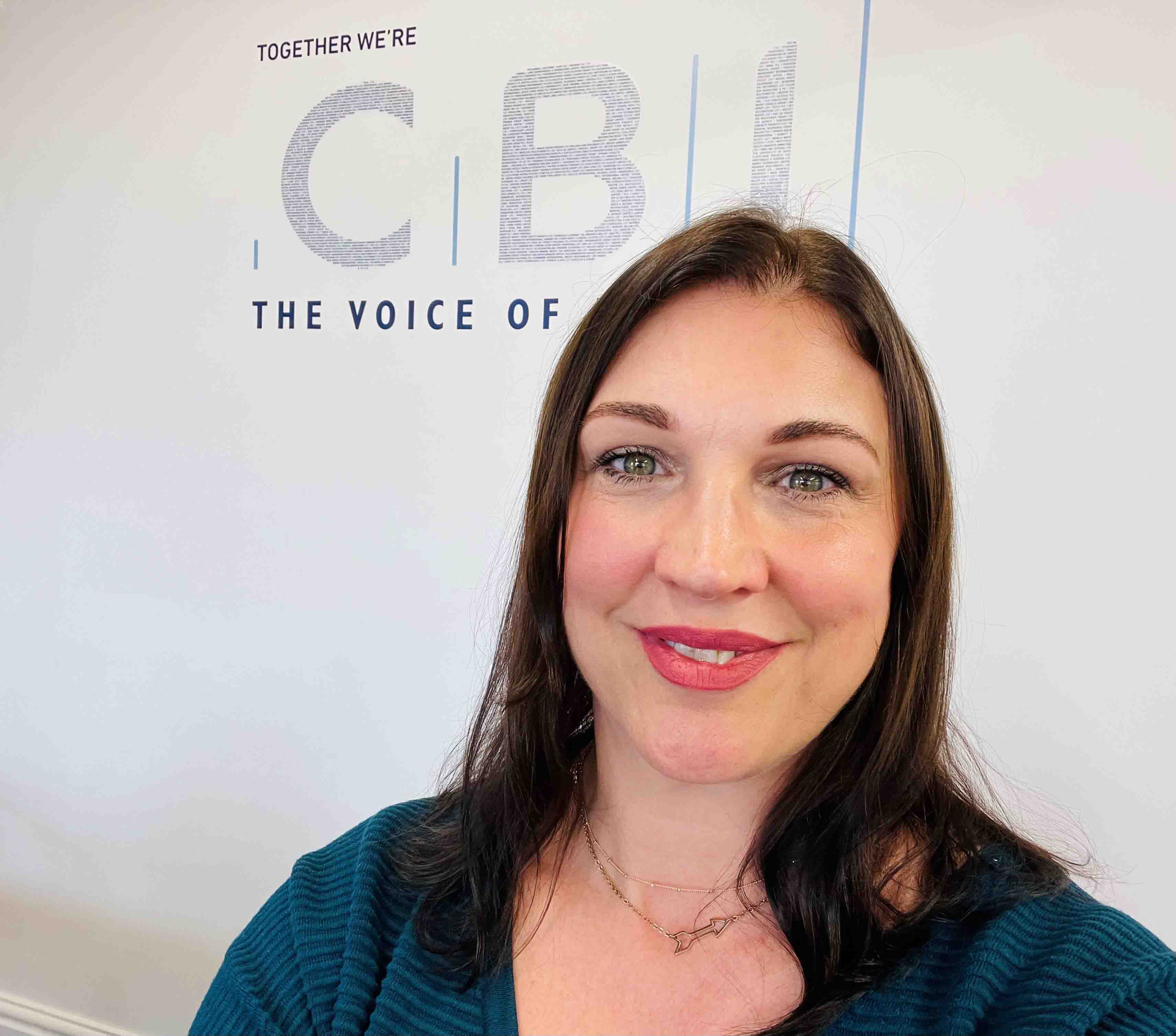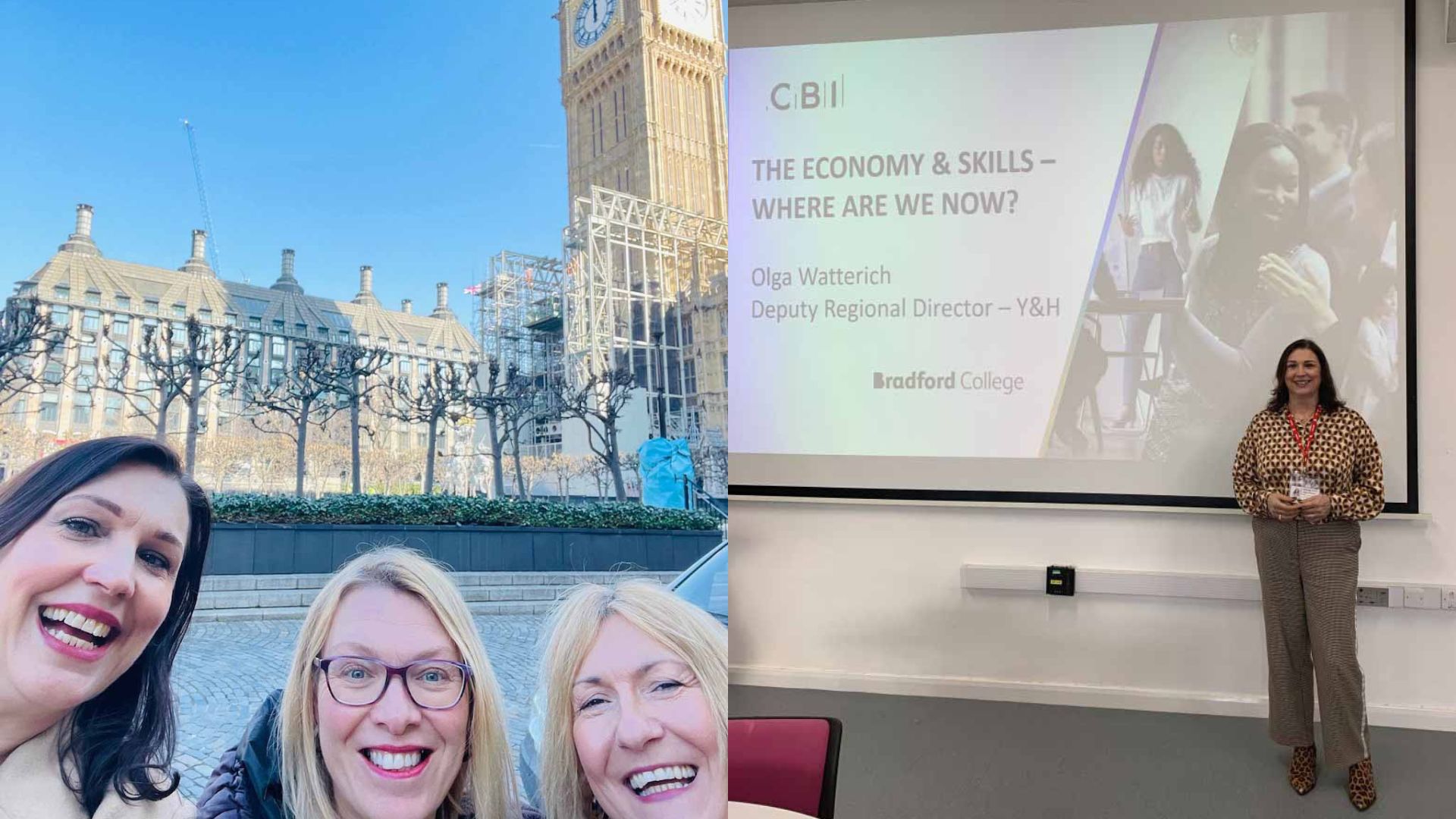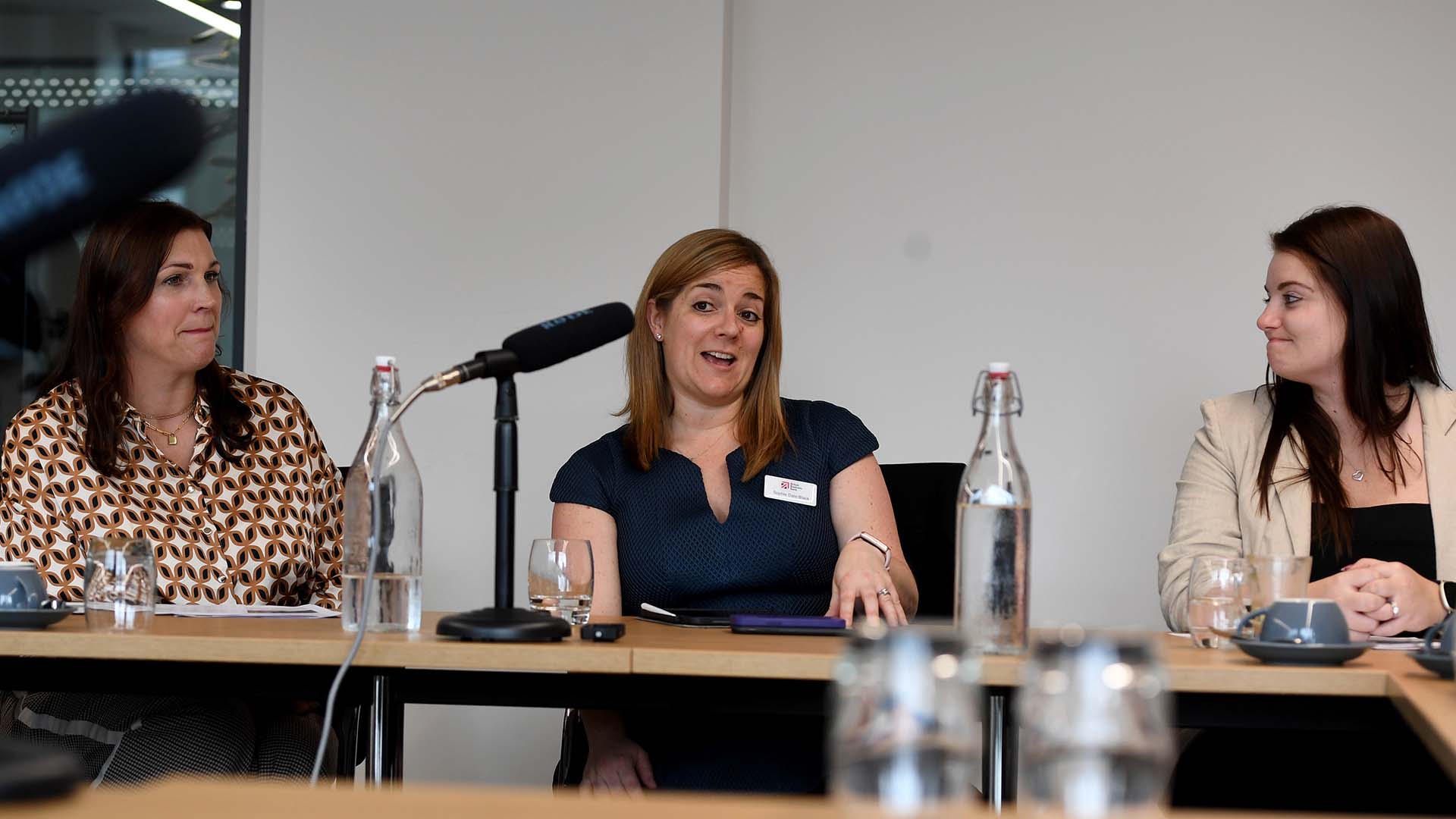
Olga Watterich
Deputy Regional Director for Yorkshire and Humber at the CBI
Hello. My name is Olga Watterich and I am the Vice Chair of Huddersfield Business School’s Advisory Board.
At Huddersfield Business School, we’re passionate about providing our students with inspirational and innovative industry knowledge to enhance their learning experience. Huddersfield Business School’s Advisory Board plays a crucial role in supporting this by guiding the school with industry recommendations, curriculum development, research and general advice about directions and trends from their industry.
Our Advisory Board is made up of leading industry experts who hold various senior positions within businesses and the public sector. The Advisory Board aims to strengthen our school’s links with industry and professions to provide input into the academic and strategic direction of Huddersfield Business School.
As part of our ‘Meet the Advisory Board’ feature, you’ll be introduced to all our Board members here at Huddersfield Business School and learn how their professions and networks have impacted the school’s strategic direction.
In our third blog, you’ll hear from Olga Watterich, who has recently been appointed as Vice Chair of the Advisory Board. Olga has over 20 years of experience working with businesses to ensure that responsible management is the thread that runs through their organisations. Her wealth of knowledge in understanding what businesses from an array of sectors need is vital for the development of Huddersfield Business School and how we adapt to ensure that we are providing our students with the curriculum and experiences that are in demand within the economy.
Please can you tell us a bit about yourself?
My name is Olga Watterich and I’ve lived in Yorkshire for over 20 years. After originally moving away from my hometown in Suffolk to go to university. In 1995, I graduated from the University of Liverpool with a BA (Hons) in German Studies. I then moved to London where I worked for 5 years in Sales and Account Management roles for media companies such as Reuters and Mirror Group newspapers, one of Britain’s biggest newspaper groups publishing 240 regional papers, before making the move back up North.
In 2002, shortly after I moved to Yorkshire, I joined an organisation called Business in the Community (BITC), a British business community outreach charity promoting responsible business and corporate social responsibility. BITC supports businesses to operate efficiently and ethically, meet and exceed legislation, and always consider its impact on people and the environment. I worked for BITC for 19 years where I started as an account manager. I then progressed within the company and moved into advising companies on their community investment strategies. In my last few years at the organisation, I managed the national community and education programme and partnership developments where I ran a team of people across England that delivered engagement activities for businesses to go into schools and community organisations and offer their support. We worked with students in schools to develop their knowledge of the world of work and employment and supported them with their reading and numeracy. In addition to this, we would also work with community organisations using business expertise to help support their organisations.
It was while working for BITC that my passion for the opportunities and ability for businesses to be a force for good in society grew, which is something I have carried with me to my current role at the Confederation of British Industry (CBI).
The CBI is a not-for-profit leading business representation organisation in the UK that speaks on behalf of 190,000 businesses. My role as Deputy Regional Director for Yorkshire and Humber involves working with organisation member companies across the region to support them to become more prosperous and sustainable, as well as raising the profile of regional firms and engaging with key stakeholders such as local authorities and local enterprises partnerships; CBI is a very strong advocate for environmental, social and governance (ESG), a set of standards measuring a business’s impact on society, the environment and how transparent and accountable it is.
In my spare time, I love going for walks on the moor in Baildon where I live. I’m a keen wild swimmer so enjoy cold water swimming even through winter! I’m also a member of my local Women’s Institute. I’m married and have three children, twins who are about to become teenagers, and my eldest who is already a teenager - so soon I’ll have three teenagers!

What made you want to join Huddersfield Business School’s Advisory Board?
It was when I was working in my role at BITC that I first came across Huddersfield Business School. The school is a member of BITC and Professor Jill Johnes, who was the former Dean of Huddersfield Business School, sits on their regional Advisory Board. After meeting with Jill, I became aware of the work Huddersfield Business School did in terms of responsible business and that’s one of the reasons why I wanted to work with the school and be part of the Advisory Board - I feel so passionately about responsible business and ESG.
I actually didn’t join Huddersfield Business School’s Advisory Board until late 2021, when I was in my current role at the CBI. It was something that my predecessor in the role of Deputy Regional Director had taken on, mainly for two reasons. One of which was a mutually beneficial partnership - the CBI really values the insights that we get from other members of the Advisory Board. There is such a breadth of different people, all with different backgrounds such as Finance, Manufacturing and Health and it’s fascinating to hear what other people say when they give their updates. Also, I think Huddersfield Business School’s Advisory Board finds the intelligence the CBI can provide on the wider economic picture and business sentiment in general really helpful.
What impact do you think you can have on Huddersfield Business School's Advisory Board and what are your strengths?
I think one of the key strengths I can bring to the Advisory Board is being a catalyst to get things done. I’m quite a proactive person and I’d like to make sure that we utilise the Advisory Board to the best of its ability. I know that’s something Helen Curtis, Chair of the Advisory Board, feels really strongly about. We’re both proactive people and we want to make sure that in our roles, we’re doing the best we can to support Huddersfield Business School. I think one of the key roles of the Advisory Board, as well in promoting the work that Huddersfield Business School does, is also being a critical friend, being a sounding board to listen to what the school is developing and saying, “have you thought about this?” or “have you thought about doing it from that angle?”. This is something that I’m keen to support in terms of what I bring from the CBI and that whole economy view. All the individuals on the Advisory Board are absolutely brilliant and they’re very good in their field, but they come at it from the angle of one particular sector. Whereas at the CBI I’ve got members across a vast array of sectors, plus I get the insights that my colleagues get from their members as well, so I can give an update across the whole economy and provide insights into key trends.
I think another key strength of mine is the number of years of experience I have working with companies on their responsible business journey and their responsible business and community engagement strategies. Over the years I have built up lots of knowledge in this area which has given me a really good grounding in understanding how the school can further embed its operation into the local community. However, I believe that this is already a real strength of the school. Not only do they embed responsible business into the way they operate and teach, but they embed themselves firmly into the local community with the support they provide. For example, using students to support community organisations with a specific issue they’ve got through their Student Consultancy Project. This initiative provides Masters students with the opportunity to work on a live project, within a business, to explore a specific strategic objective or problem within an organisation. The students then make recommendations on how to improve and grow that particular area of the business - it’s such an amazing programme.
What contributions have you made to the Advisory Board or Huddersfield Business School?
I’ve been on Huddersfield Business School’s Advisory Board now for just over a year and one of the key things that I’ve contributed to was the review of the school’s strategy with a responsible business and sustainability lens. The Dean was keen to review the whole strategy and check that ESG was embedded into all the key objectives within the school. I found the whole process really interesting and felt it really drew on my strengths and knowledge.
Another area in which I’ve contributed is the Association to Advance Collegiate Schools of Business (AACSB) process, an accreditation that is widely considered the highest level of accreditation for business schools. When the accreditors came to Huddersfield Business School in October of last year, I went to the evening meeting where we networked and had conversations about some of the work that the Advisory Board does. It’s amazing that the school has now achieved this accreditation, I can’t wait to see what the school achieves next and I’m looking forward to being involved with future projects.

How do you think the Advisory Board can influence Huddersfield Business School’s curriculum and the student experience?
In terms of the student experience, I think the Advisory Board can provide intelligence on what’s happening in industry and the economy, informing the delivery that Huddersfield Business School provides for their students. As members of the Advisory Board, we understand what businesses will need in the future and the future needs of the economy. We all have our finger on the pulse in different sectors and can therefore use these insights to provide feedback to the school so that they can ensure relevant courses are being delivered for their students and business community.
In terms of the curriculum, one of the things that I’m interested in is micro-credentials. I think there is definitely a demand out there for businesses to be able to send employees on short courses to be able to fill smaller skills gaps and increase employees’ productivity and help them to perform at a higher level. I hear this a lot from my businesses in membership of the CBI, about future skills and that their current employees tend to have a technical skills gap and sending them on a short course could just fill that gap. I think micro-credentials are something that the Advisory Board could definitely support the school with going forward.
